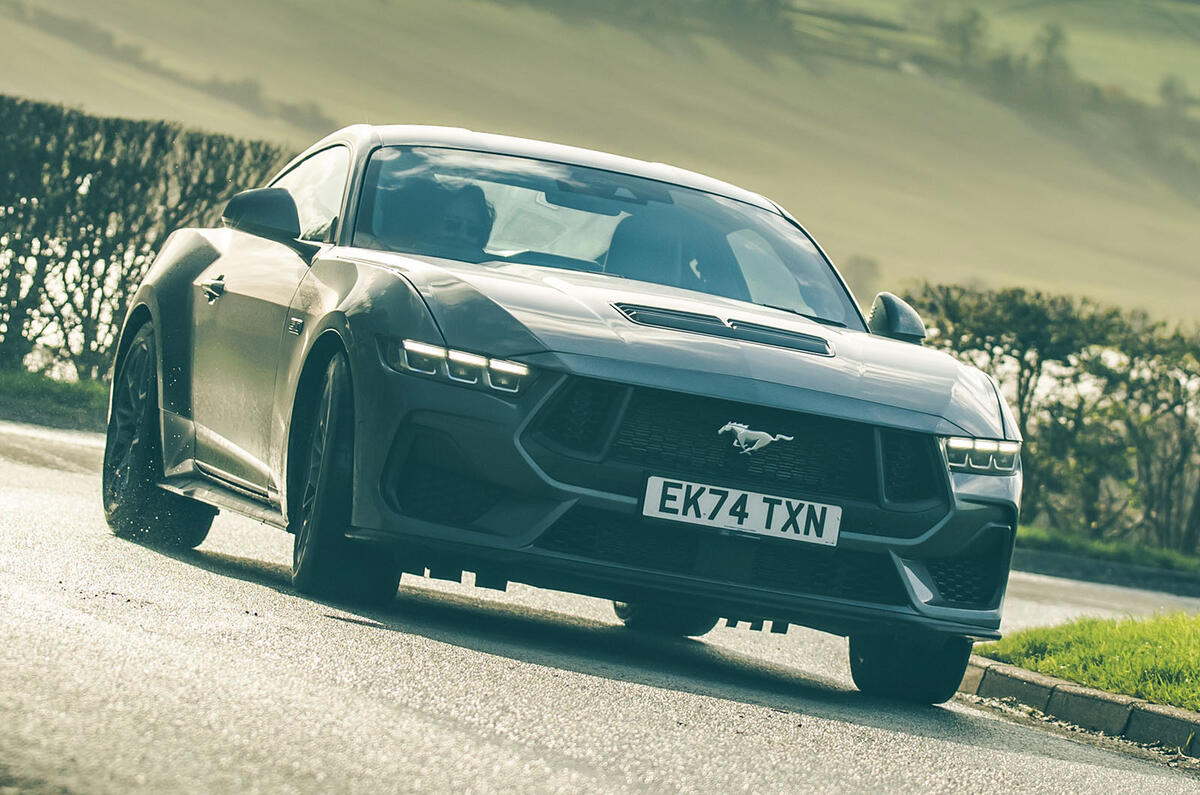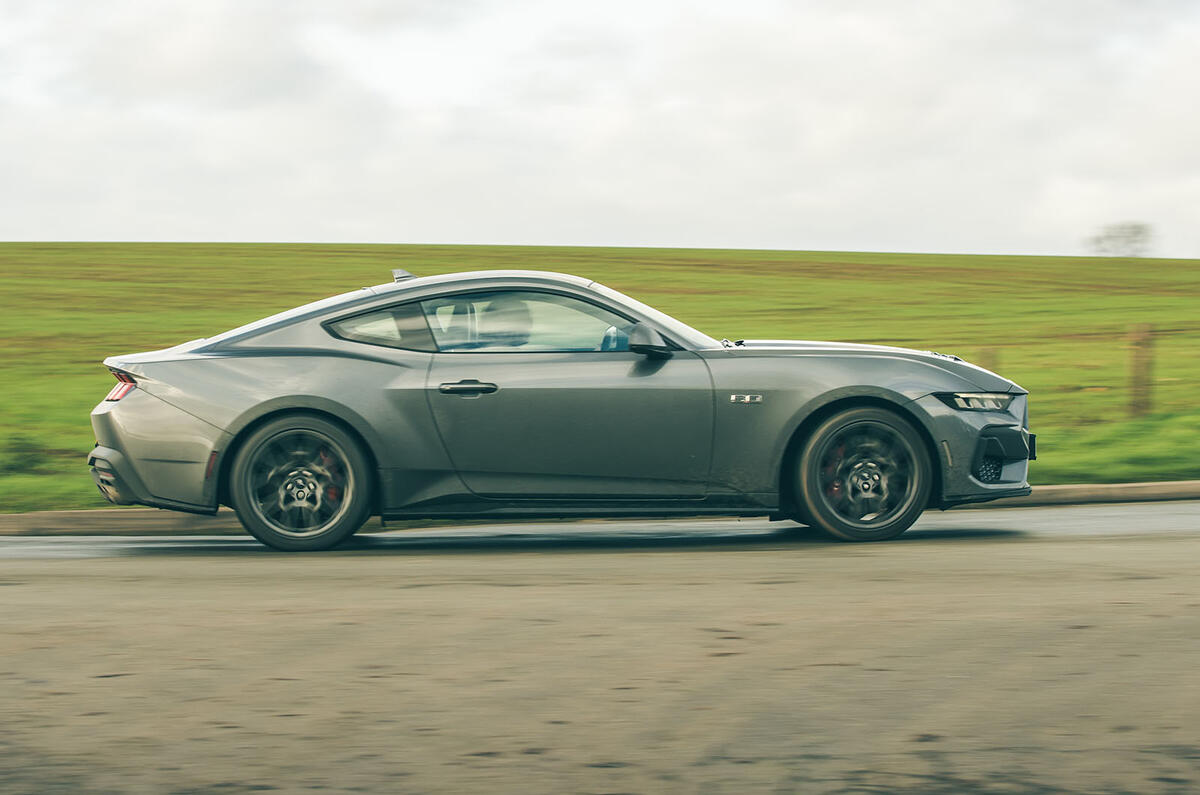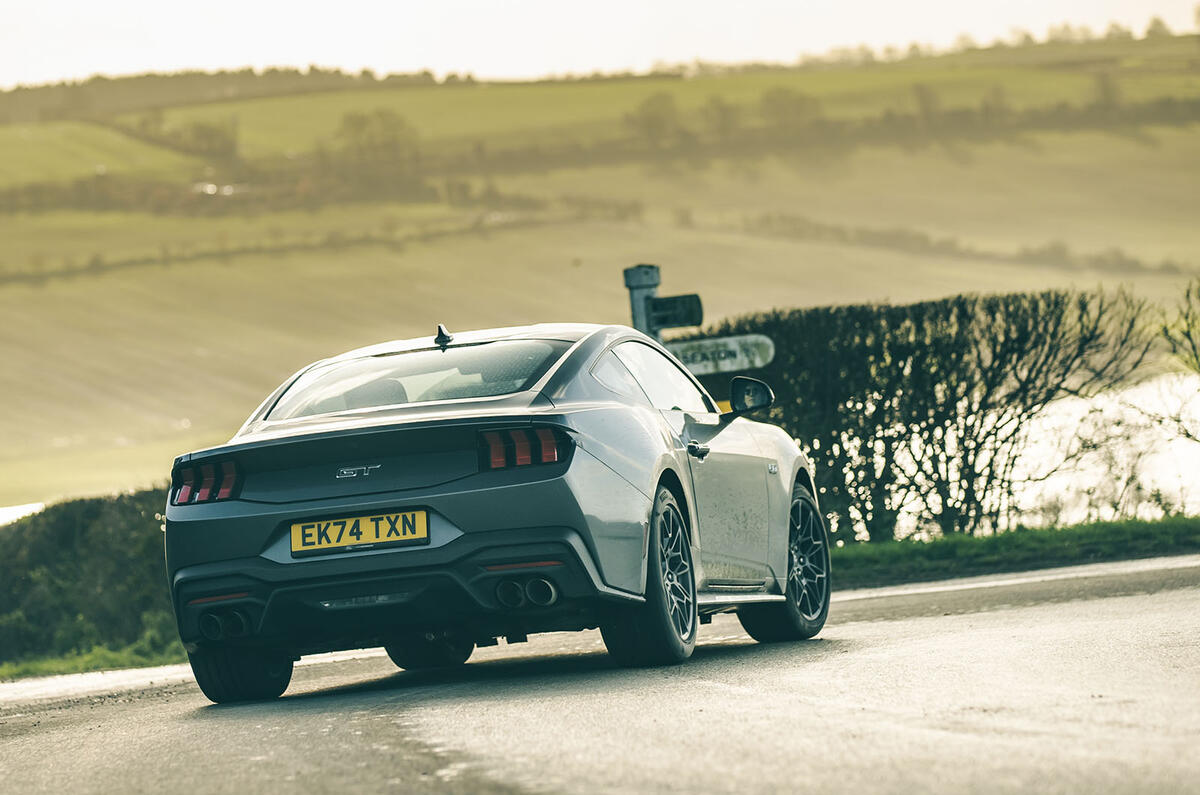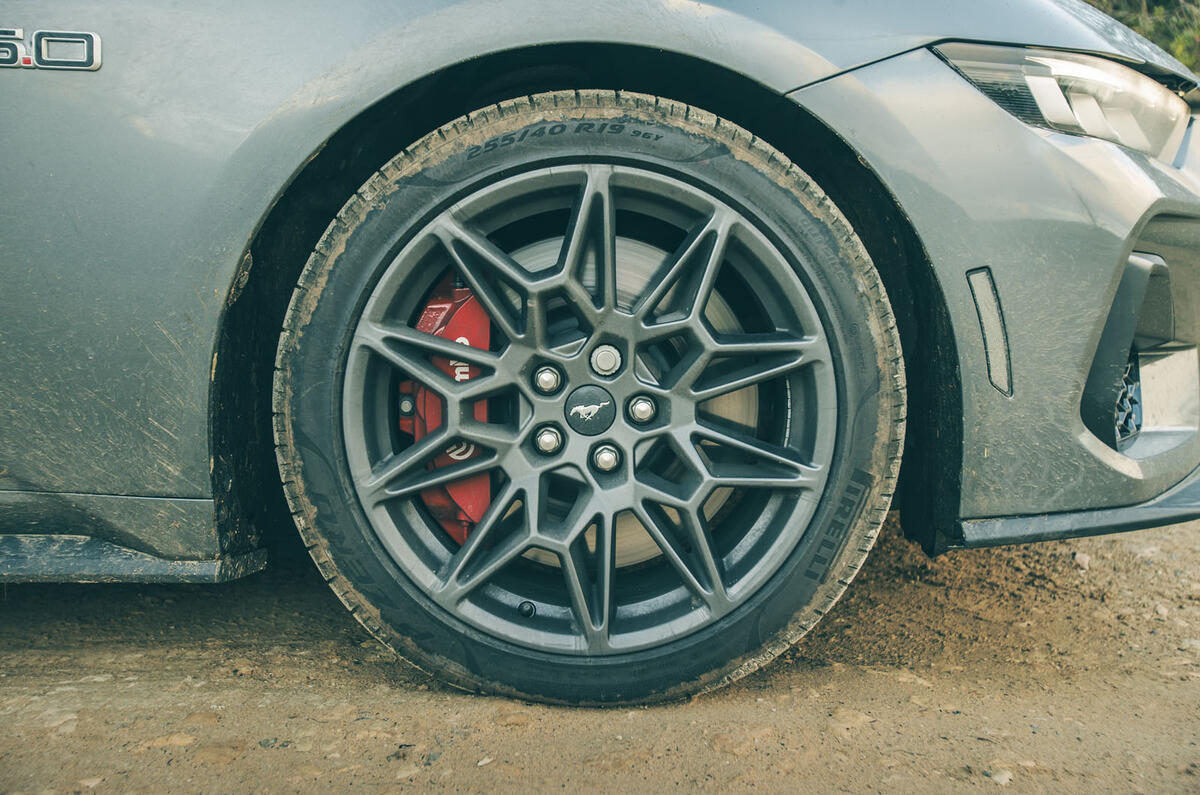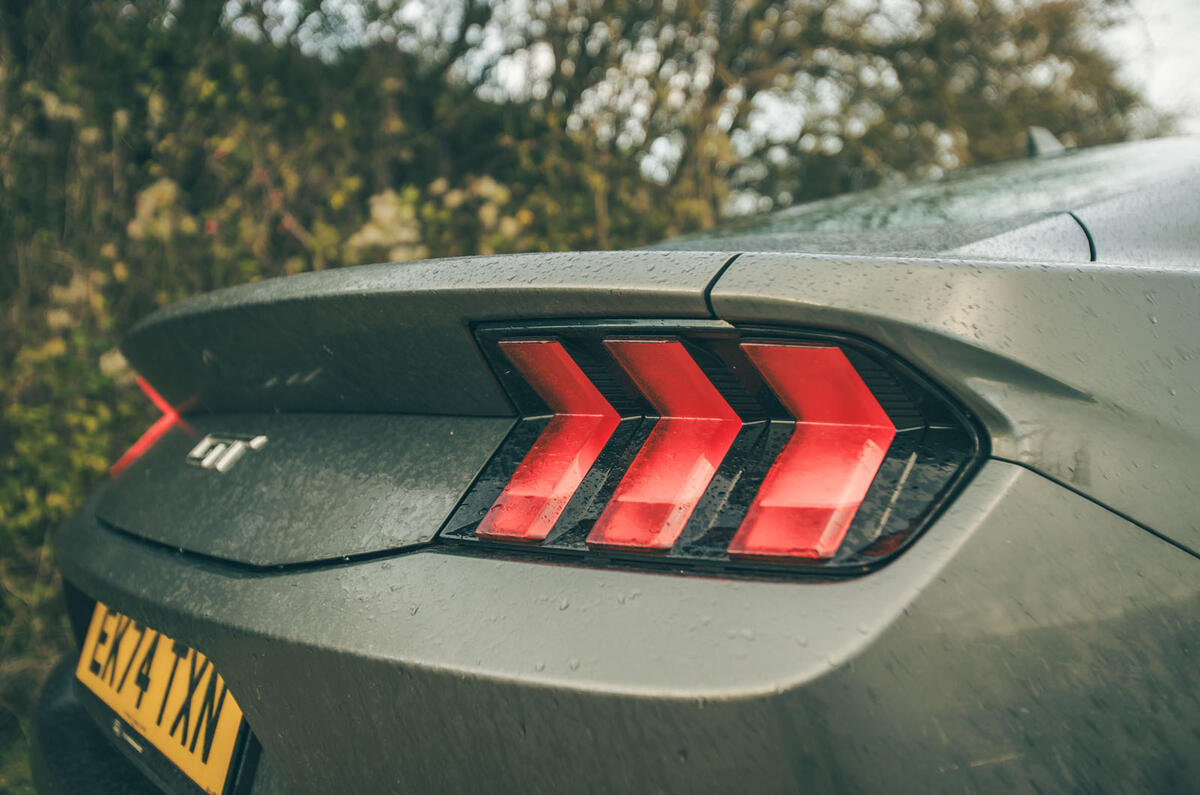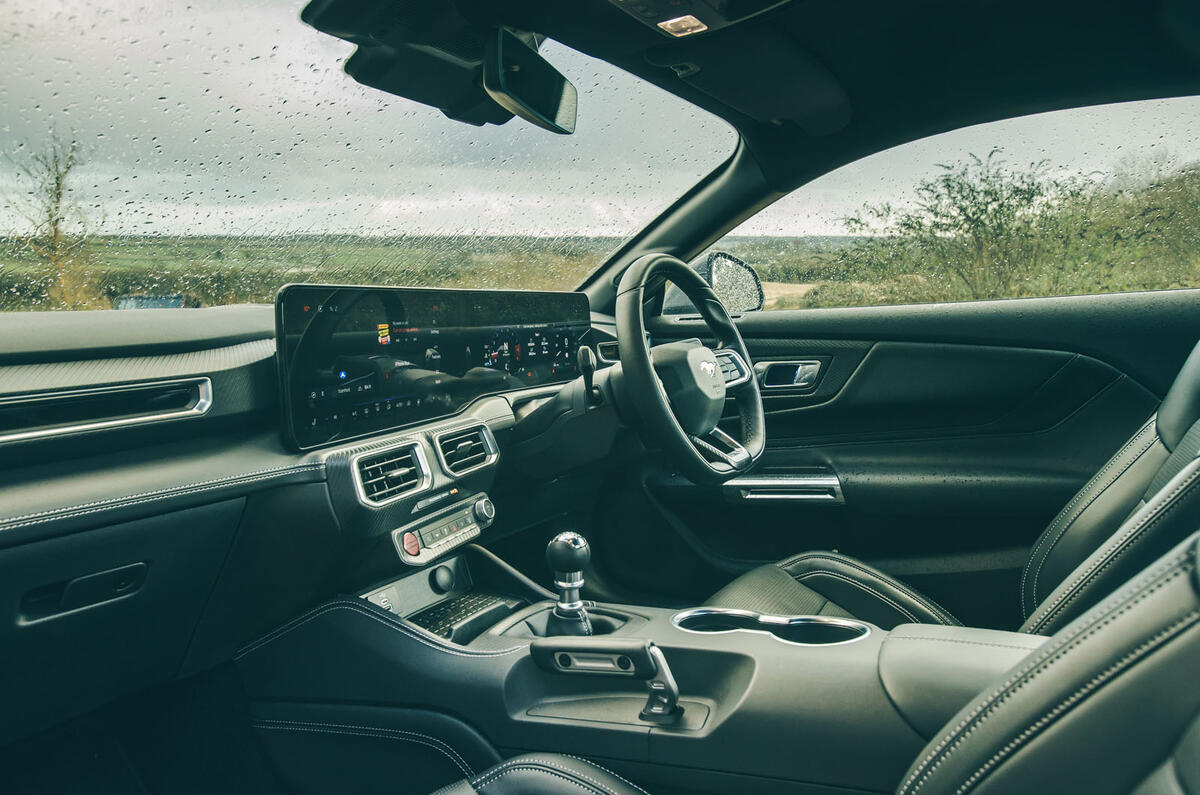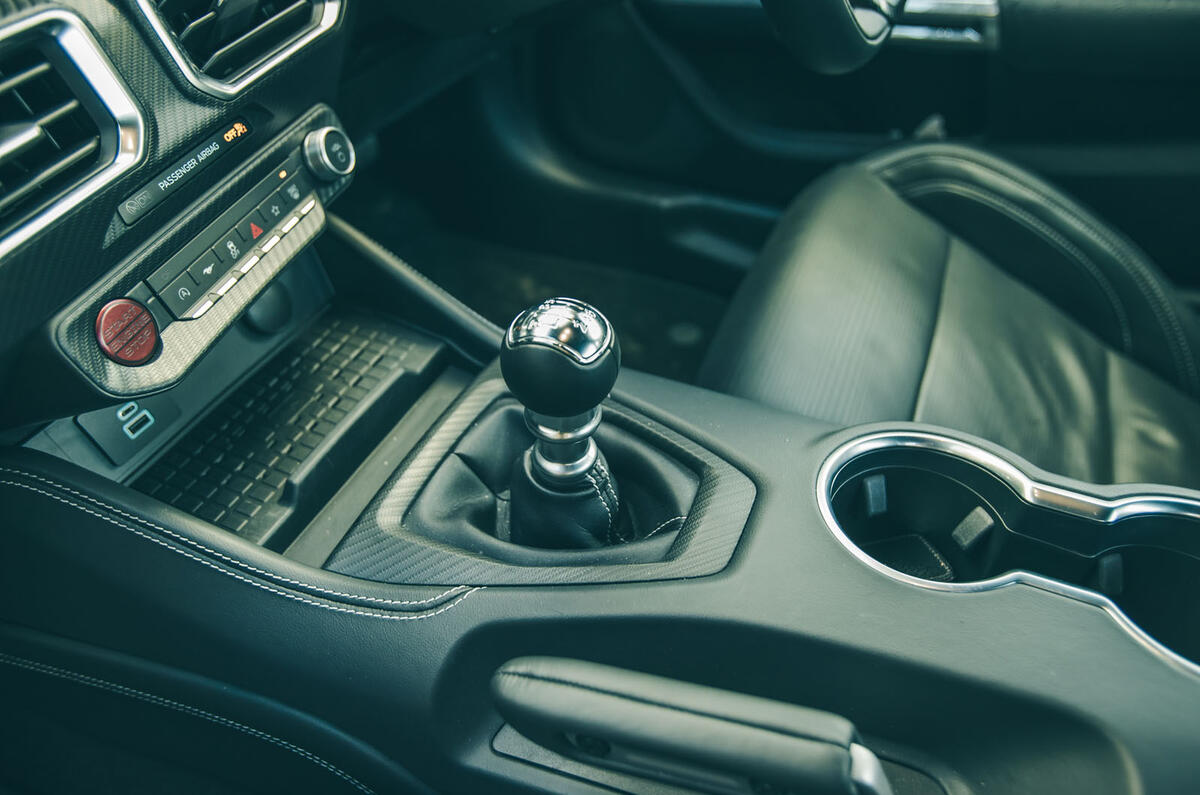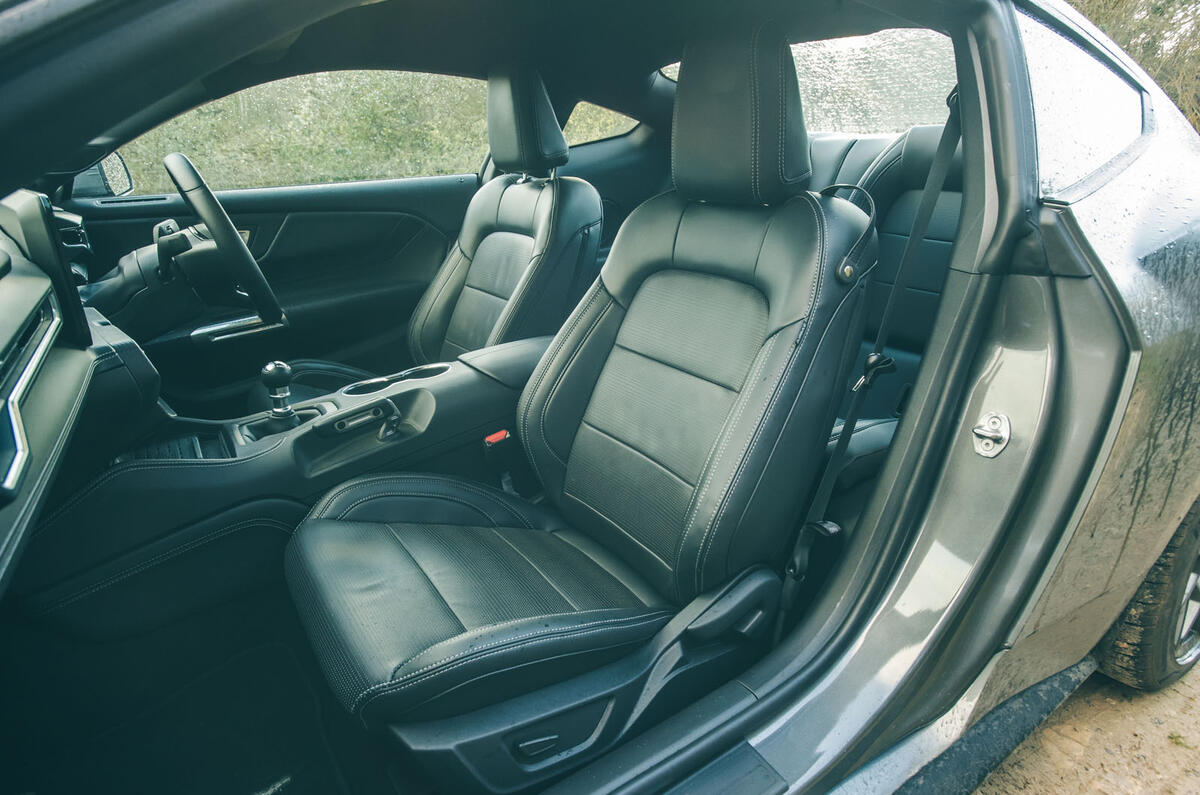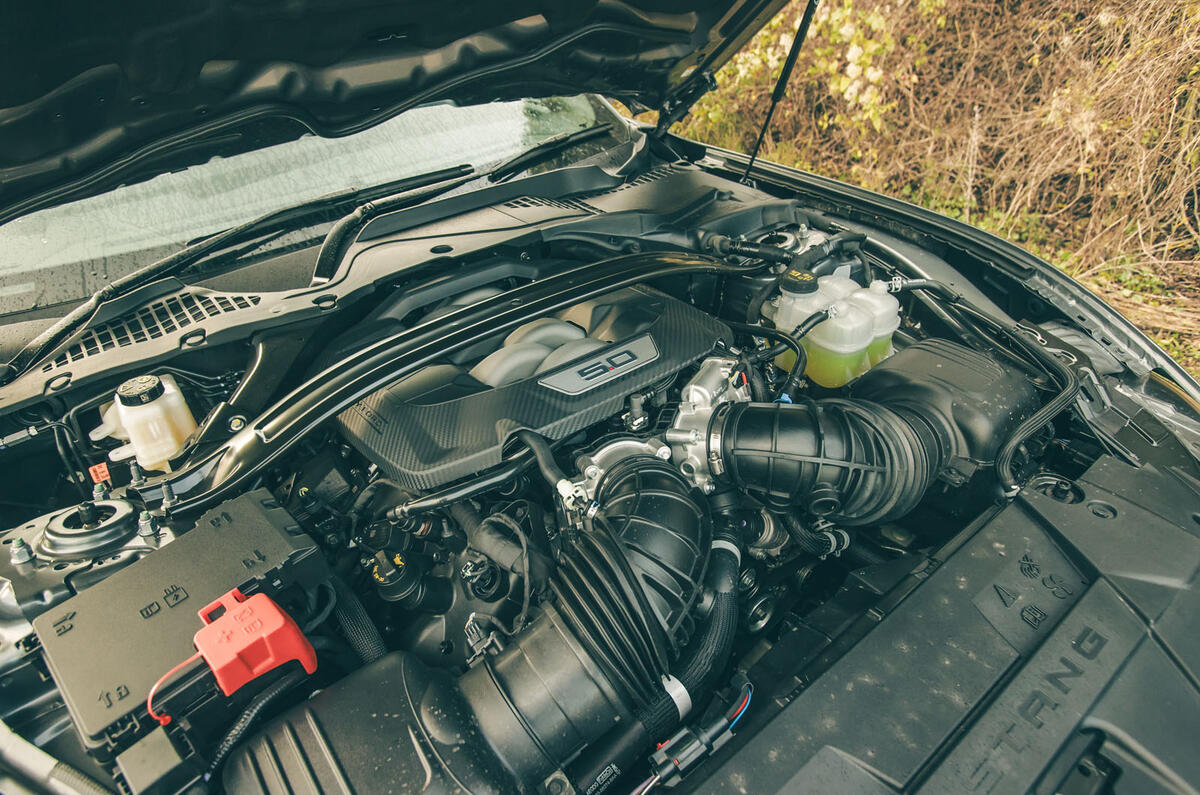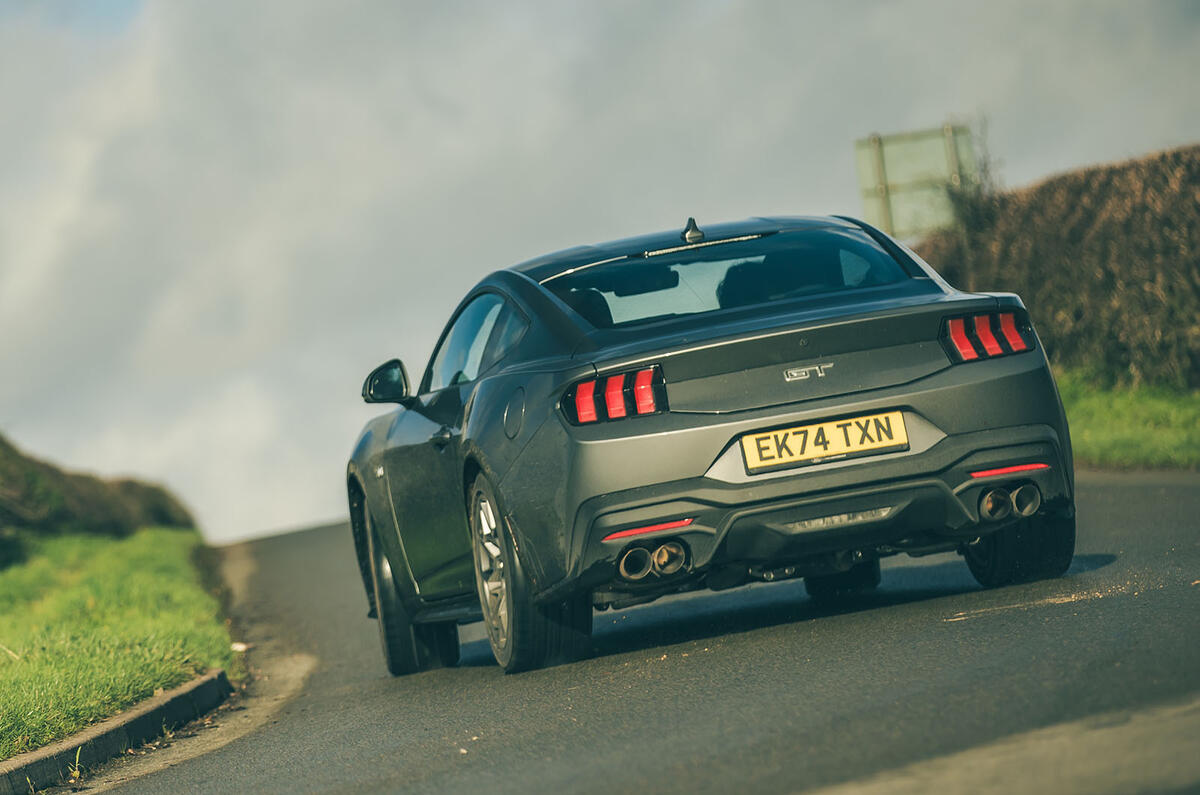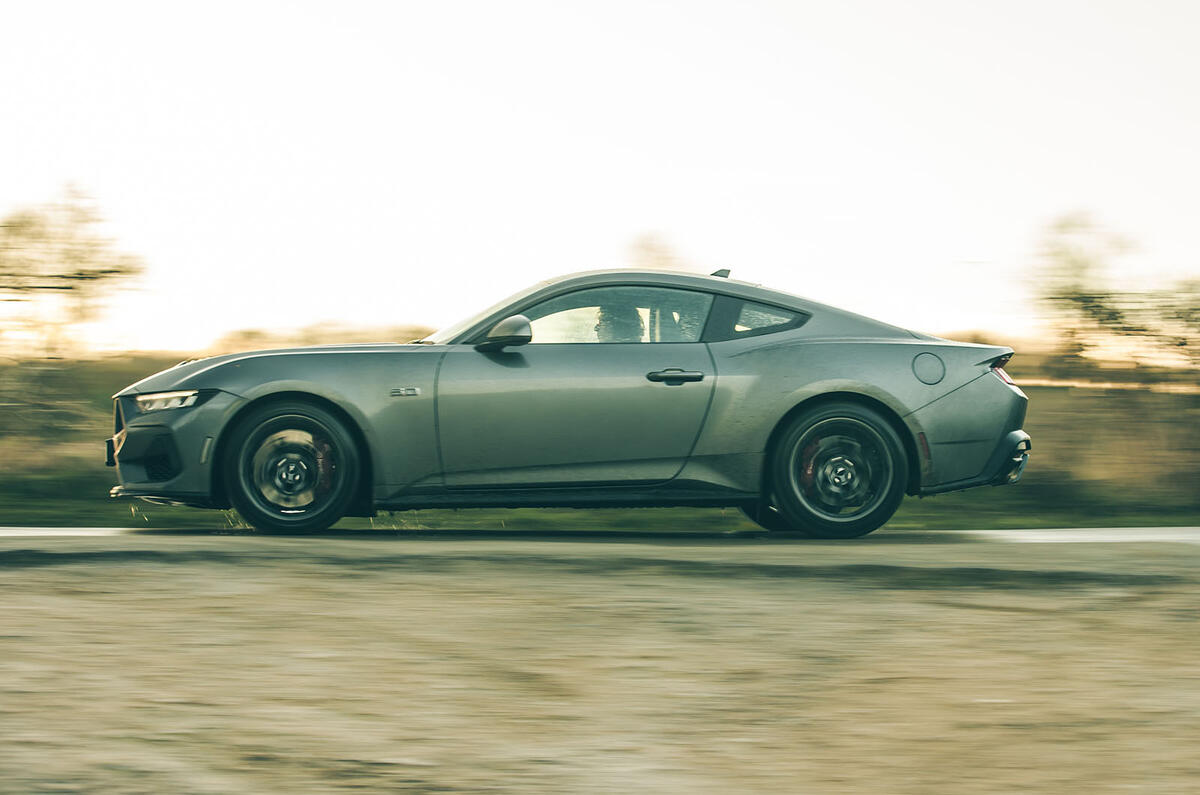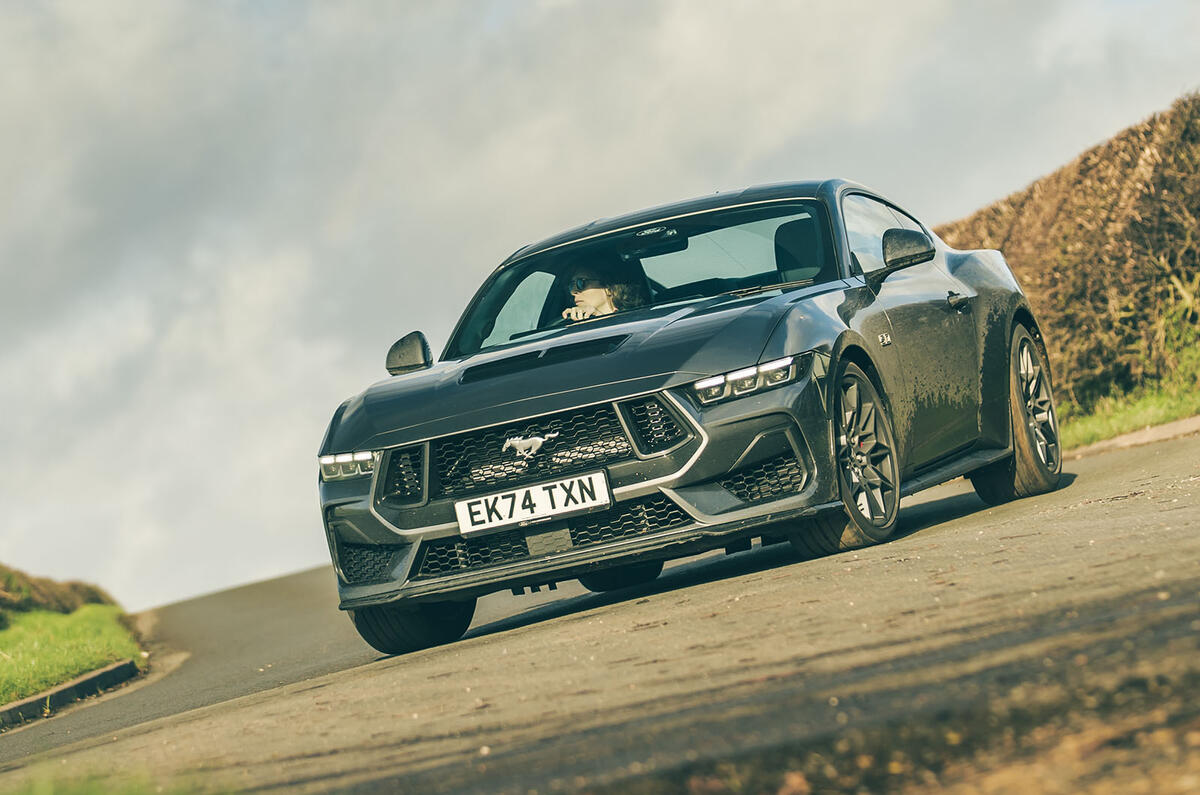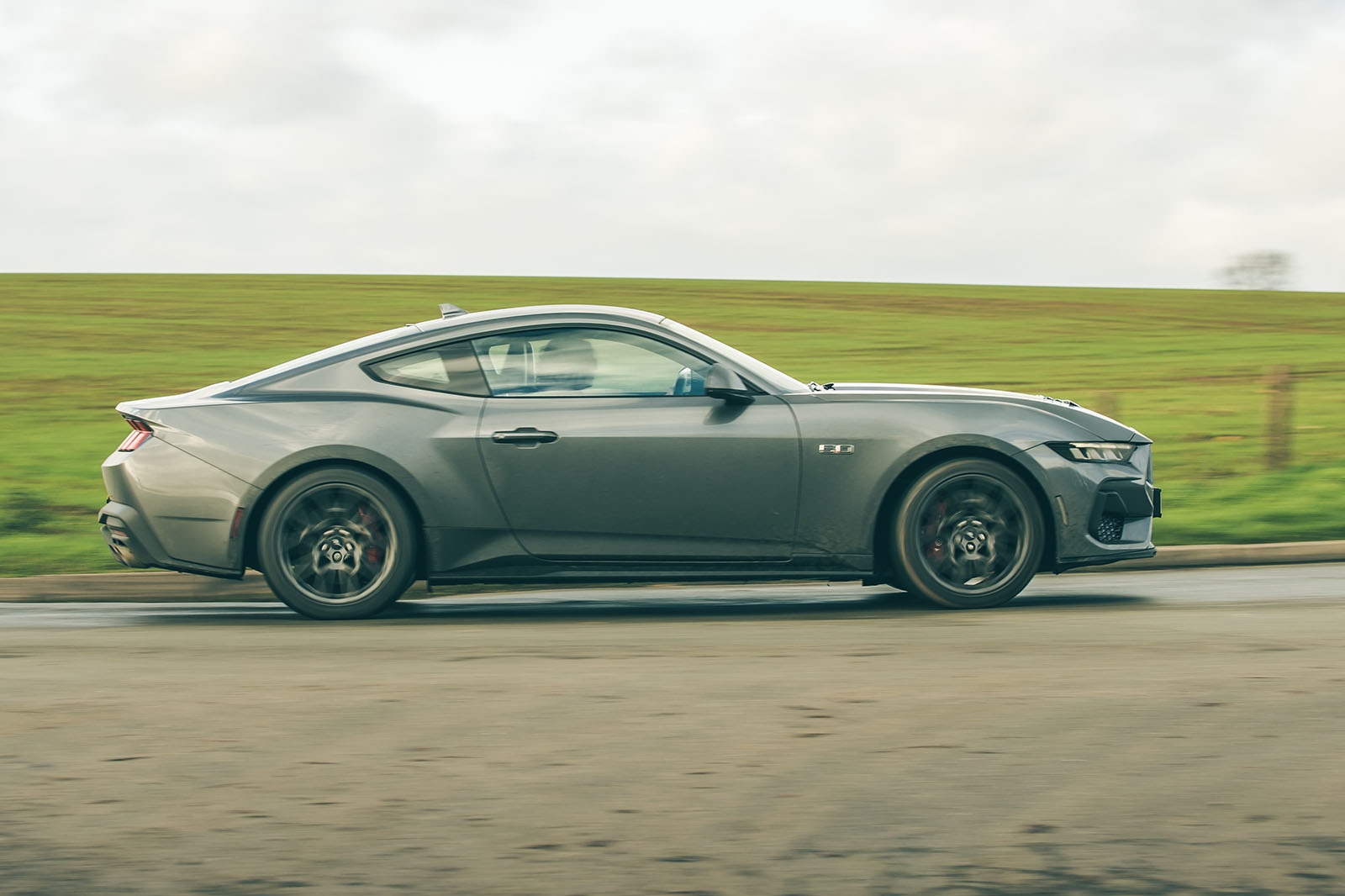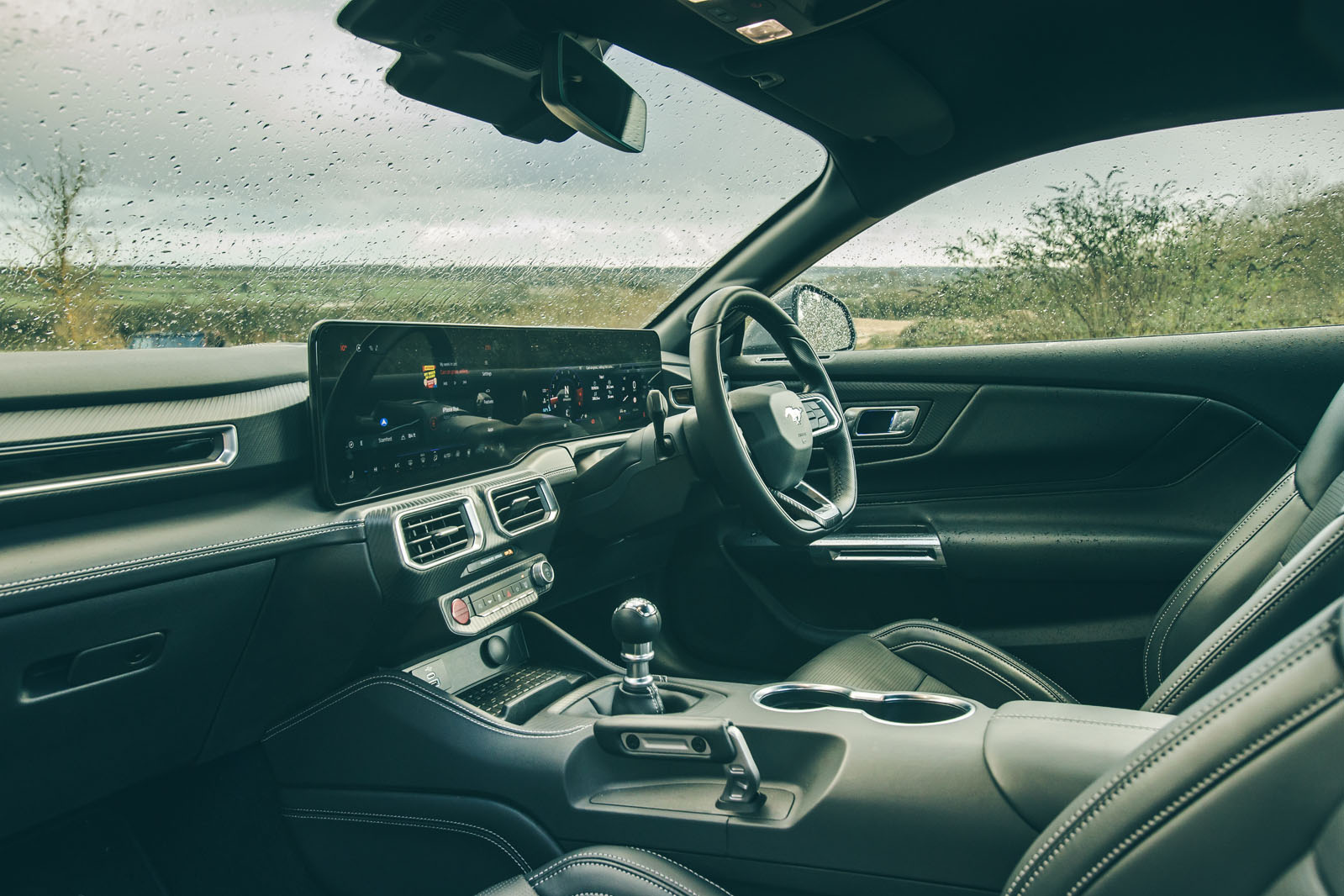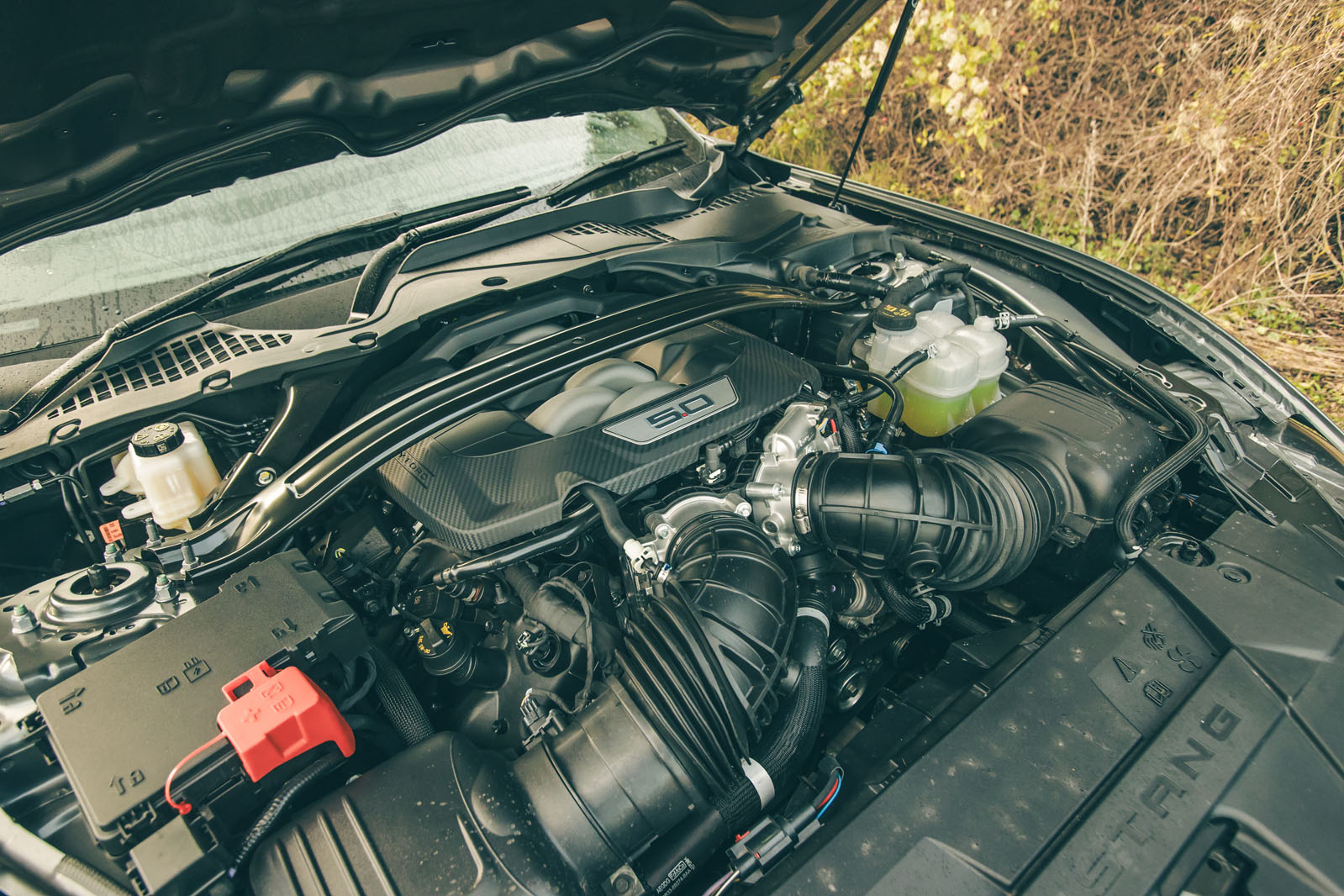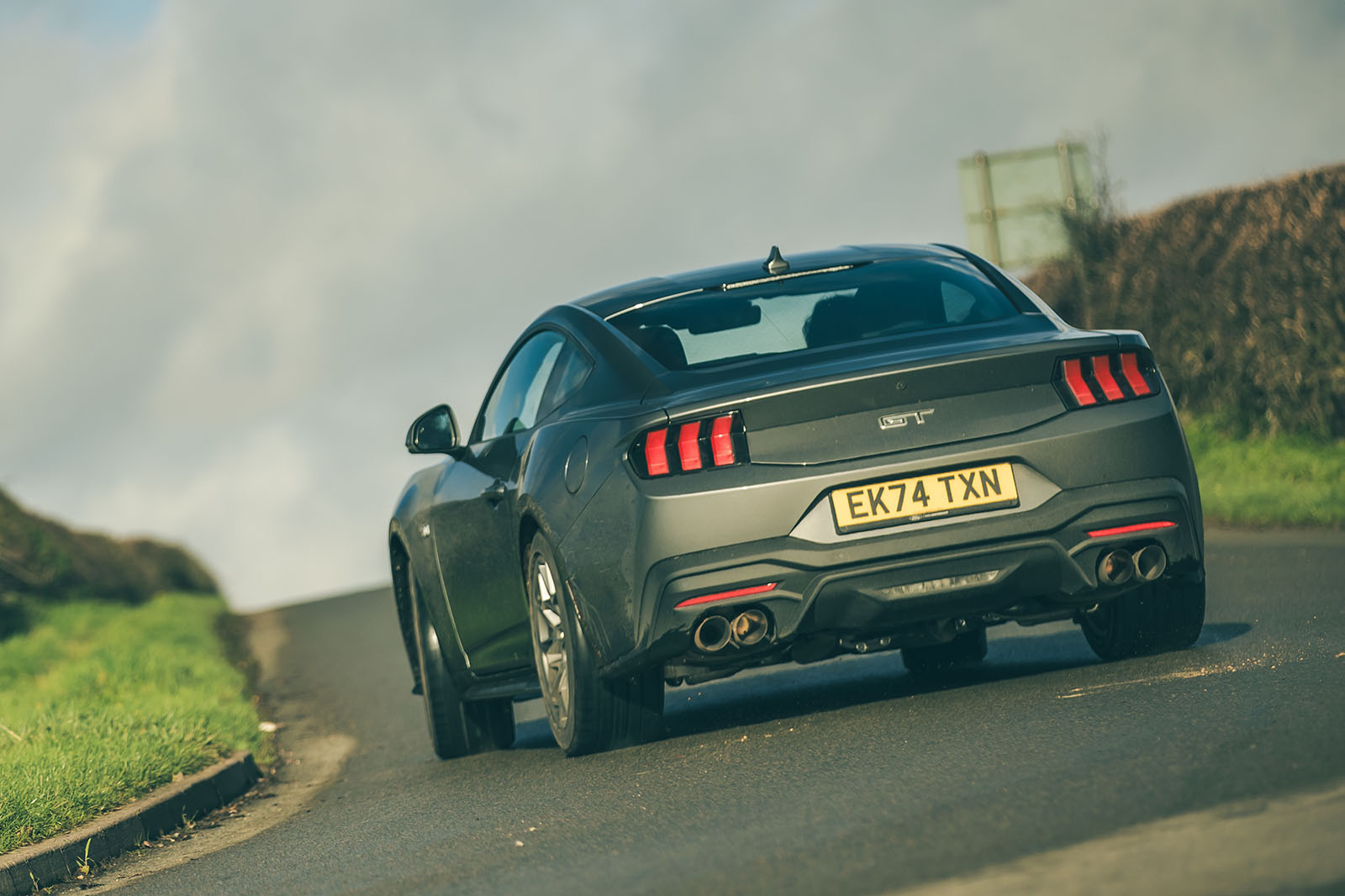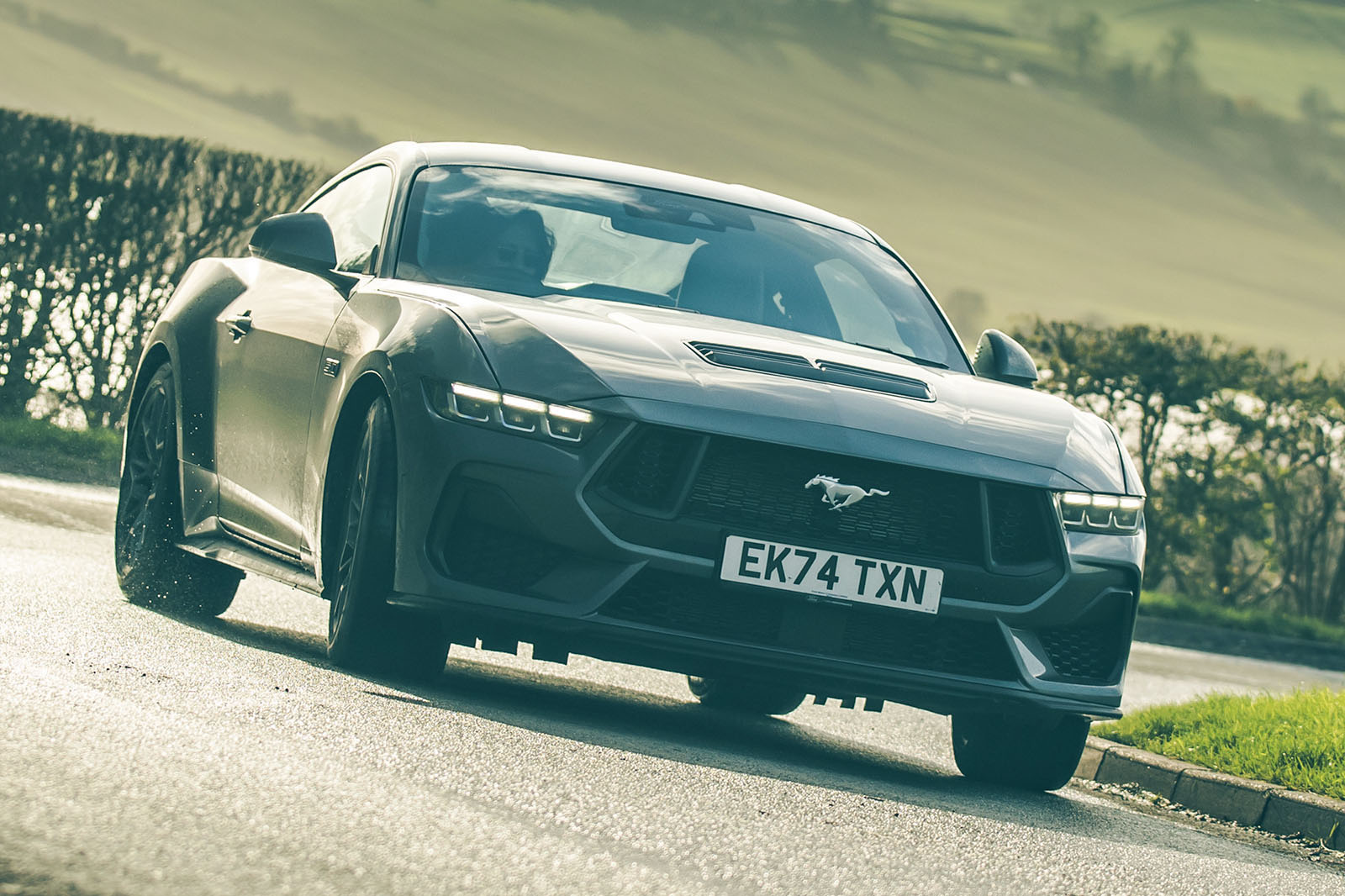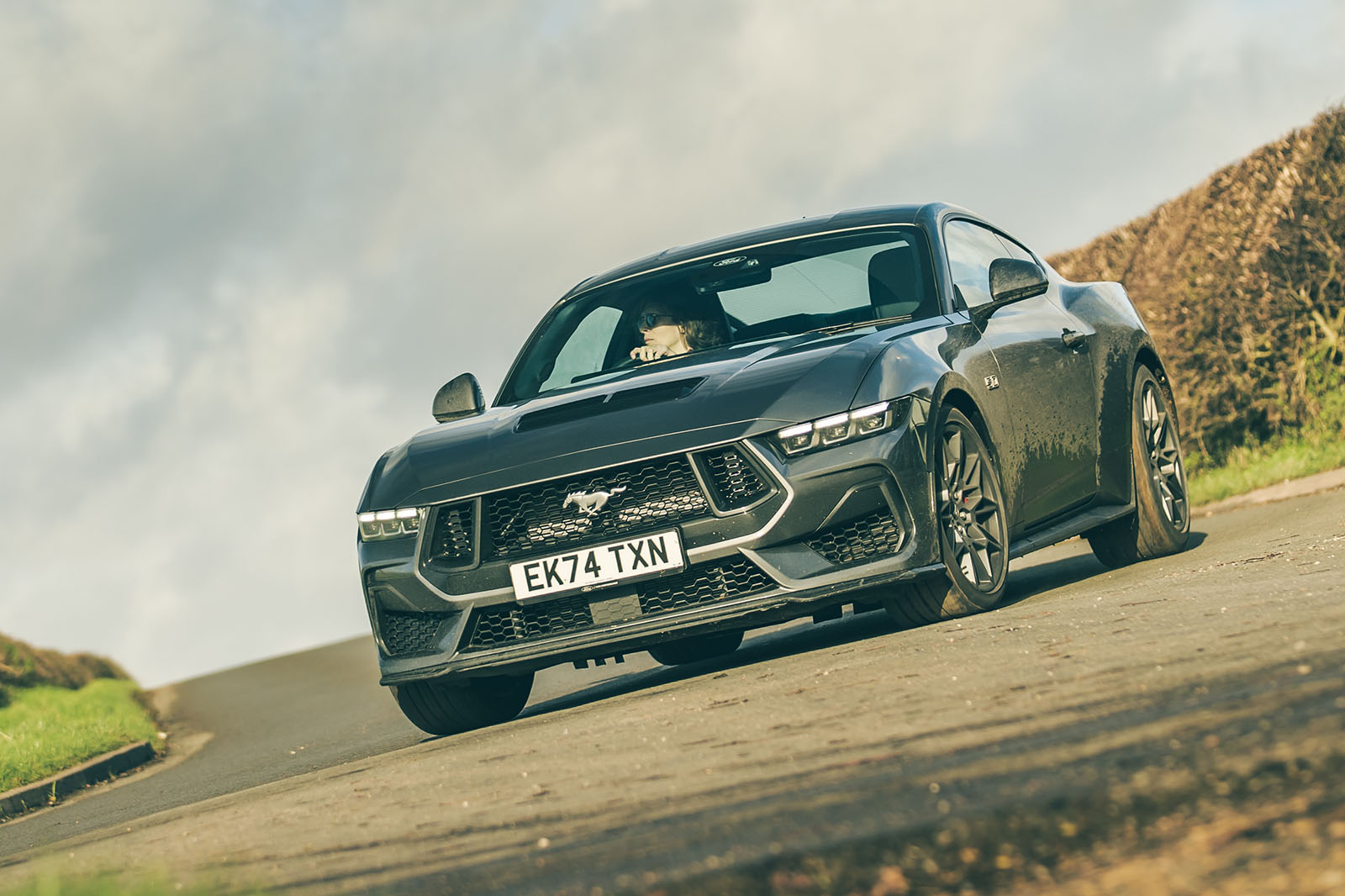So, it’s worth sticking with the manual, then, and it’s hard to see why you would bother with the Dark Horse either. It gets only a handful of extra power and no extra torque, and this GT drives every bit as well.
If anything, its damping feels a touch less rigid. The magnetorheological adaptive dampers (a £1750 option on the GT, standard on the Dark Horse) are still very firm, even in the Comfort setting, although the ride feels rubbery rather than brittle.
It settles down on the motorway, making the Mustang a pretty decent long-distance cruiser (if you can stomach the 20mpg).
You wonder which roads they were calibrated for, though, since the firmer settings are completely pointless on the road. Even so, over crests and big bumps, body control can feel a tad loose.
We can forgive it the slight uncouthness, because the Mustang is ultimately a muscle car, and one that’s very willing to entertain. The spectacular sound, the manual gearbox and the classic rear-drive balance make this one of the most simply entertaining cars on sale.
Conditions were cold and greasy for our week with the Mustang, which may sound scary with 440bhp and rear-wheel drive, but this car just has balance to spare. Little slides, big slides: it’s all just a flex of the right foot away and very easy to catch.




